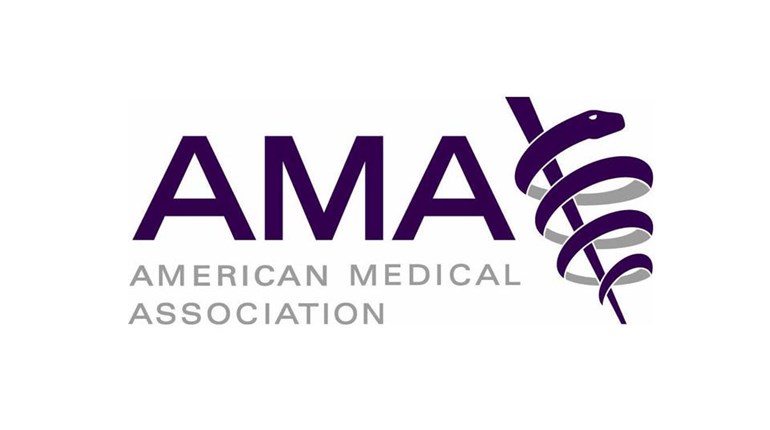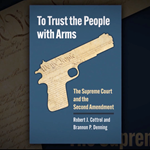
In the aftermath of a massacre, confusion reigns. The news media broadcast non-news, non-stop. Eventually, you come to think that everything you hear in the first 24 hours is wrong.
After the Orlando Pulse attack on June 12, CBS, ABC, NBC and CNN immediately went into their ’round-the-clock 2-minute drill: Was it terrorism? Was it a hate crime? Was he mentally ill? Did his family suspect?
However, one group of professionals was not plagued by self-doubt—but, surprisingly, it was neither law enforcement nor the news media.
It was the American Medical Association (AMA) that knew exactly what to do: It sent out a press release.
Less than 48 hours after the massacre, the AMA pronounced:
“In the wake of the worst mass shooting in America, and with more than 6,000 deaths already in 2016 from gun violence, the American Medical Association (AMA) today adopted policy calling gun violence in the United States ‘a public health crisis’ requiring a comprehensive public health response and solution.” [AMA] membership has steadily declined every year since [the 1950s], to about 14 percent of full-time practicing physicians today.
“… the AMA resolved to actively lobby Congress to overturn legislation that for 20 years has prohibited the Centers for Disease Control and Prevention (CDC) from researching gun violence.”
“With approximately 30,000 men, women and children dying each year at the barrel of a gun … the United States faces a public health crisis of gun violence …”
“Our AMA ‘recognizes that uncontrolled ownership and use of firearms … is a serious threat to the public’s health …’”
The AMA went on to tout policy positions supporting waiting periods and “universal” background checks.
Curiously, none of the AMA’s proposals would have done a thing to stop the Pulse attacker. The AMA didn’t address terror, or hate crime, or mental illness, or FBI watch lists—all revealed by the investigation to have played some part. In fact, the AMA’s press release was so far off the mark that one has to wonder why they felt compelled to respond at all.
I think I know the answer: It was a cry for help.
Most Americans hold onto the belief that the AMA represents most, if not all, U.S. doctors. This was close to the truth in the early 1950s, when the AMA represented about 75 percent of all U.S. physicians. But membership has steadily declined every year since then, to about 14 percent of full-time practicing physicians today. The AMA’s leaders have been unable to staunch this bloodletting; despite giving away 8,577 free memberships to graduating medical students in 2007, membership decreased by 2 percent again in 2008.
Several reasons are cited for this decline. There is a theory that, in an age of specialization, doctors don’t feel the need to belong to such a broad organization, choosing to instead join state and specialty associations.
The AMA’s political positions have driven docs away, too. AMA members left in droves when its leadership came out in support of Obamacare, and its support for mandatory medical insurance is unpopular. The AMA was strident in opposition to Medicare, though it now opposes any cuts to the program. The AMA was even convicted by the U.S. Supreme Court for violating the Sherman Anti-Trust Act when it tried to prevent docs from working for HMOs in the 1930s.
If you couldn’t tell from their Orlando press release, the AMA has been virulent in their opposition to gun rights, too.
The AMA is unmoved by docs who vote on the AMA’s political advocacy with their wallets. “When you take a position, there is a target on your back from some, though others will think it is great,” says AMA president Dr. Cecil Wilson. “What the AMA does, and does best, is in the advocacy arena. And all doctors benefit from this.”
However, evidence suggests that hundreds of thousands of docs don’t see the benefits of AMA membership anymore.
This decades-long decline has left the AMA on the precipice of irrelevancy. Competition from those aforementioned state and specialty organizations have decimated AMA finances, and many docs believe those wield more political power than the AMA: “The Texas Medical Association is in a much stronger position to meet my needs in Texas,” says Dr. Robert Tenery, a Dallas ophthalmologist who was once head of the AMA’s ethics counsel. Evidence suggests that hundreds of thousands of docs don’t see the benefits of AMA membership anymore.
In addition, members have little say over AMA’s operations and policies. From its Chicago headquarters, AMA policies are set by delegates from state and specialty organizations. Though it bills itself as an independent member organization, individual members have practically no say in AMA policy decisions.
In the face of looming disaster, the AMA has resorted to desperate measures. Though a third of AMA members don’t pay the full $420 annual dues already, membership task forces have experimented with tiered dues structures, staged benefits and deep discounts. All this flailing makes the AMA appear less like the monolith of 1950 and more like the Blockbuster Video of 2010.
One proposal being floated would make AMA membership mandatory when joining state associations; those associations would then be in charge of AMA recruitment and dues. But who wants to try to force docs to join a failing association with little or no perceived benefits … just so it can continue living?
AMA has replaced member revenue with dollars from its Current Procedural Terminology (CPT) coding system and other business ventures, but even that’s problematic: A 2011 physicians survey revealed that more than half said CPT conflict-of-interest concerns would be a reason to quit the AMA.
Still, the AMA blusters on, desperately trying to retain a shred of credibility by pretending that it truly represents the medical profession. The organization’s Pulse news release didn’t even contain any actual news—it merely restated long-held positions. As such, it can only be considered a pathetic sideshow to a conversation of national importance. Reading it is like stumbling upon “Sunset Boulevard” while channel surfing: In one of the creepiest scenes ever filmed, aging, delusional movie star Gloria Swanson is ready for her close-up, but no one is buying a ticket.
Remember that scene next time the AMA steps over the victims of a mass murder to send out a press release … as if that wasn’t creepy enough already.

































